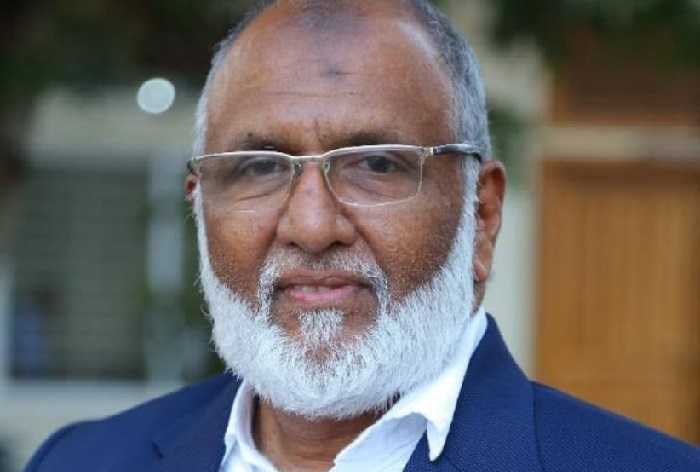Bengaluru, Jul 4: The Social Democratic Party of India (SDPI) has asked the Election Commission to take necessary steps to keep Electronic Voting Machines and candidates with criminal background away from the 2019 Lok Sabha polls in India.
Addressing a press meet here today, Elyas Muhammad, the newly elected state president of the organization, said that the country should go back to ballot system to ensure free and fair polls as the EVMs are highly vulnerable and can be manipulated.
He gave the details of the ‘State Representative Council’ meeting held in Mysuru on July 1 and 2 wherein new office bearers and members of state committee were elected.
Following are the resolutions passed by SDPI state representative council:
Those with clean image only should become parliamentarians
Political parties are in look out for candidates for the looming Lok Sabha elections. About 25% of the present public representatives have various criminal cases against them. Supreme Court has warned that criminals shouldn’t become public representatives and that the criminal cases against them be disposed of at the earliest.
Certain politicians are busy raising the issues pertaining to religion, caste, language and border aiming at creating a rift among the citizenry. Politicians are indulged in land mafia, sand mafia, mining mafia and several other corrupt practices. The candidates who would be contesting in the Parliamentary elections should be of clean hands, honest and of good character.
They have looted the taxpayers’ money and have allegations of corruption. Some politicians are seen showing their stand of being communal and spreading hate. No political party should field any such candidates in the upcoming Parliamentary election. Particularly BJP, Congress and JD(S) should keenly consider towards this subject as more number of elected Parliamentarians are from these three political parties.
Those who can safeguard our land’s language, culture, resources and work towards the development of the state and its citizenry irrespective of their religion, caste and language and can bring maximum schemes and grants from the central government to the state should become Parliamentarians.
People should take up the responsibility of creating pressure enabling the candidates to pay importance towards the welfare of the people rather than their parties.
In this regard, SDPI has been holding pro-people struggles for the past 9 years.
Have control over education mafia
Karnataka has earned accolades from across the world in the education field. From Nursery to Higher education fields, students from other states and foreign countries too are carrying out their studies contributing a special share towards the state’s economy.
But the exploitation harassment by private deemed universities, higher educational institutions, convent and English medium schools is increasing day by day. Mysterious and unnatural deaths of students inside campuses and hostels, menace of huge donations, fake certificates, lack of basic amenities, rampant religious/casteist discrimination, educational institutions under the ownership of politicians, violation of departmental rules and with such other issues the education system is very perturbed and is lurching.
The state government should take initiative and restructure and reform the government educational institutions of their shortcomings. All students, including those coming for studies from out of the states and foreign countries should get superior education.
EVMs should not be used in elections in future
Electronic Voting Machines should not be used in the upcoming Lok Sabha elections, assembly elections and Karnataka local body elections.
There have been serious allegations against the use of EVM as the machines are highly vulnerable to tampering and that there are several cases against the use of EVMs in different High Courts and the Supreme Court. In the recently concluded assembly elections in Karnataka, a dozen cases have been filed against EVM with the High Court.
We hereby urge the Election Commission and Central Government to return to the traditional Ballot system of voting as the justified and fair election is what our Constitution guarantees us in upholding the democracy.
Government should hold census prior to budget
Social, economic and religion wise data census should be revealed immediately. It should be carried out before the Chief Minister presents the new budget as crores taxpayers’ money is spent for it. There has been pressure from the general public for Census since decades. Accomplishment of Census and its disclosure earlier will ease the release of subsidies and schemes to the benefit of socially, economically and deprived classes and ensure that the facilities and grants would reach state’s all communities equally aiming their overall development. The Census carried out in the state could be an example to the country. SDPI urges for immediate disclosure of the Census and fulfil the demand.
The new government should disclose the caste and economic census carried out by the Karnataka government before the budget is presented.
The socio-economic and educational census of the people of Karnataka has been prepared by spending huge taxpayers’ money and with an investment of a lot of human resources. Then what’s really the purpose of carrying out the said Census?
With the socio-economic and educational survey, this Census would be of help plan and present the budget based on the socio-economic conditions of the people thus ensuring that the people get thee social justice.
The newly elected Karnataka state committee of SDPI is as follows:
President: Elyas Muhammad Thumbe
Vice Presidents: Devanooru Puttananjayya, Abdul Majeed Mysuru
General Secretaries: Abdul Hannan Ramanagar, Mohammad Riyaz Farangipet
Secretaries: Akram Hassan Ullal, Alfonso Franco Belthangady, Afsar Kodlipet, Ashraf Machar
Treasurer: Javed Azam Bengaluru
Members: Abdul Lathif Puttur, Abdul Rahim Patel Gulbarga, Abdul Jaleel Krishnapura, Mujahid Pasha, Adv. Abdul Majeed Khan Puttur, Abrar Ahmad Chamrajnagara, Kumaraswamy Mysuru, Amjad Khan Mysore, Fayaz Ahmad Bangalore, Amin Mohsin Madikeri, Mohammad Samiulla Bengaluru.





Comments
Mkae balance with all communities, Get some Dalit Hindus and Christians.
Add new comment